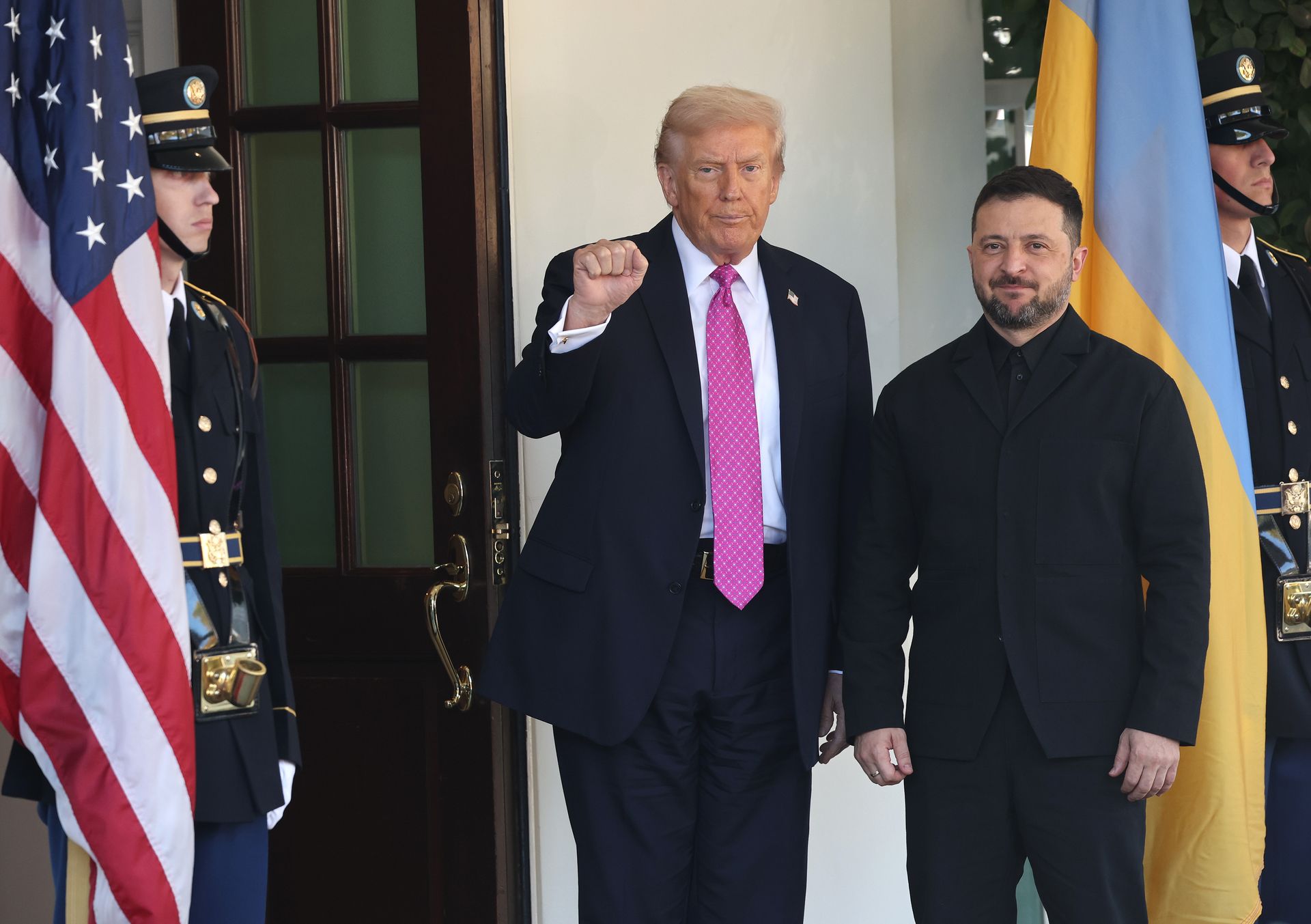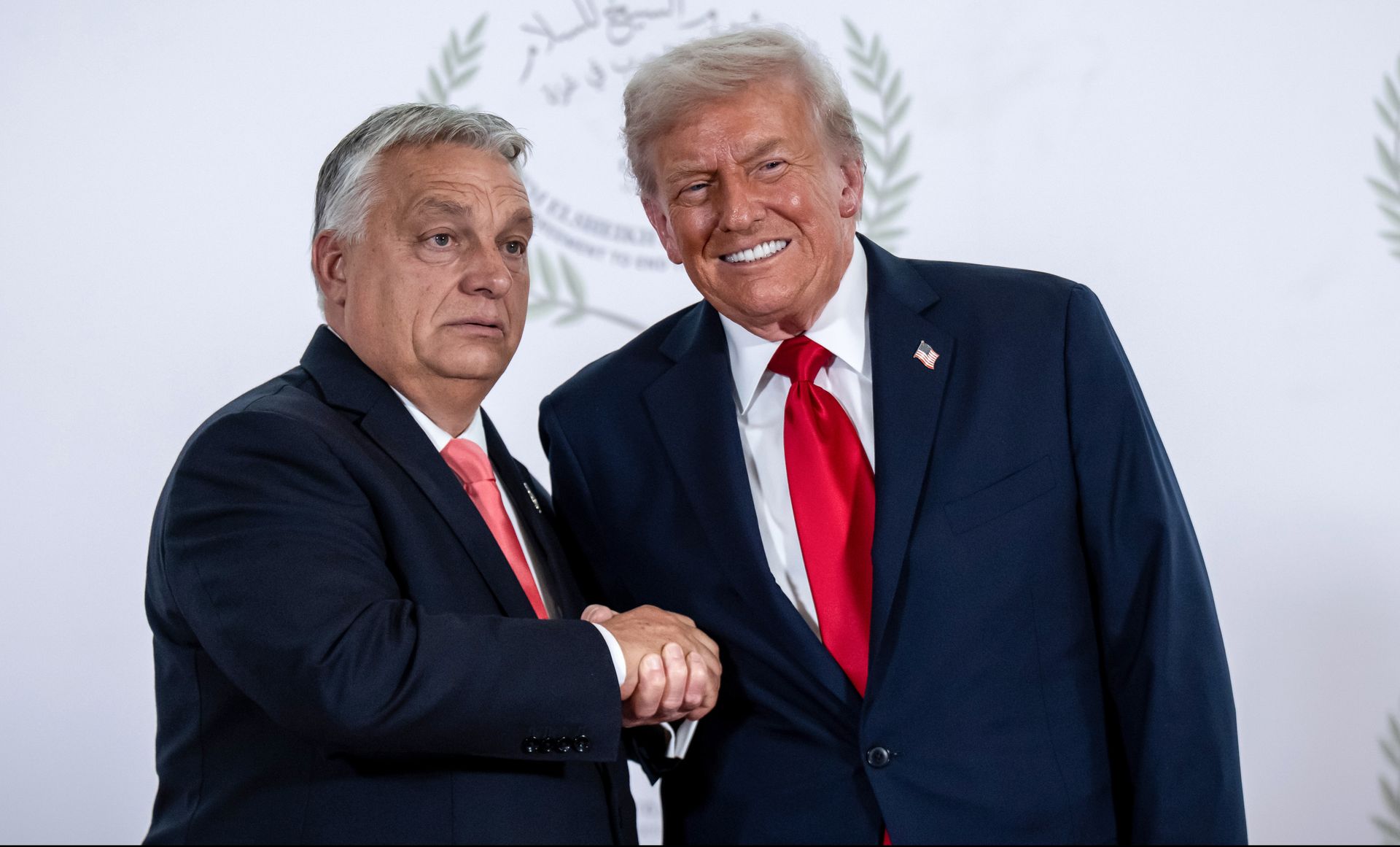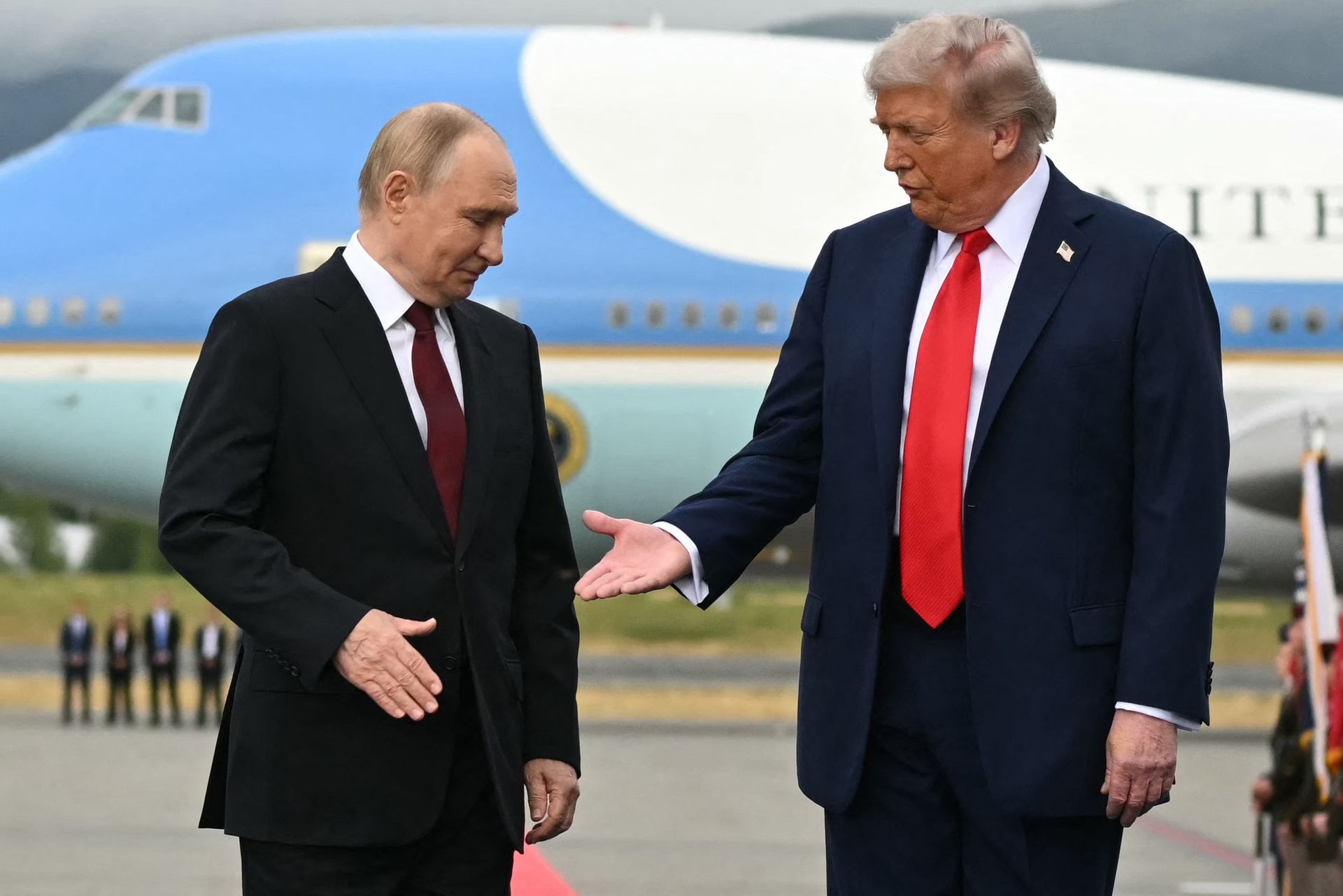Reduced protection, rising tensions: Inside Lithuania's strained relations with Tsikhanouskaya
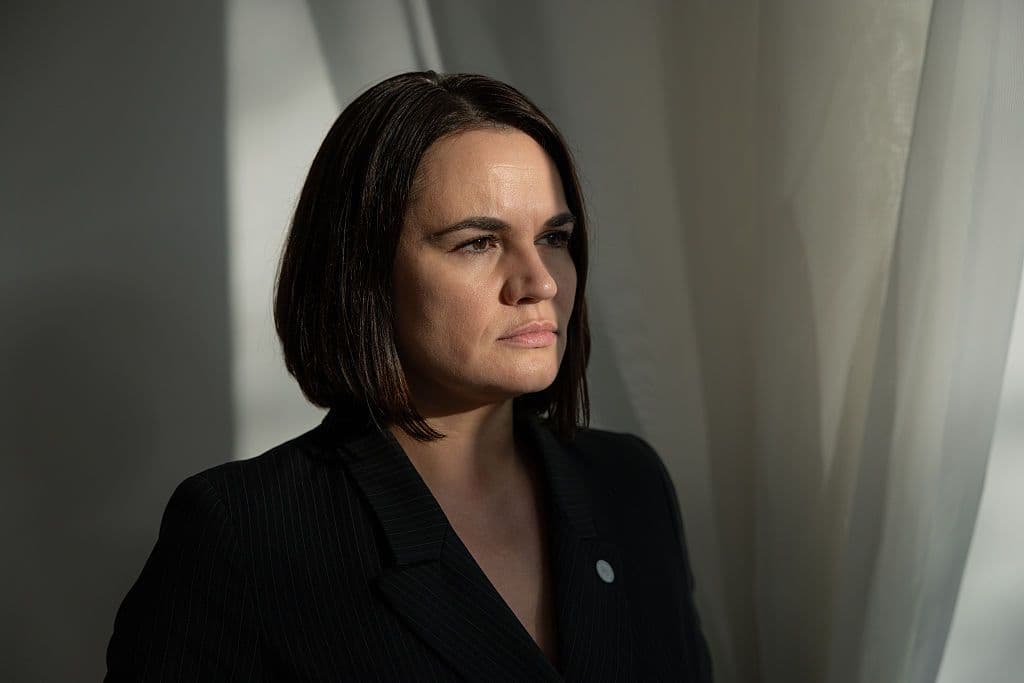
Sviatlana Tsikhanouskaya, opposition leader in Belarus, at the European Political Community (EPC) summit in Copenhagen, Denmark, on Thursday, Oct. 2, 2025. (Nichlas Pollier/Bloomberg via Getty Images)
Belarusian opposition in neighboring Lithuania had a tough week.
Lithuania's new government quietly reduced the state-provided security for exiled Belarusian opposition leader Sviatlana Tsikhanouskaya, a move that has been attributed to financial concerns and a perceived lower threat level.
The headquarters of Belarus' democratic forces shut down, while Lithuania's opposition called the decision "a betrayal." The decision was later overturned.
Critics say the conflict is a signal of domestic turmoil and war fatigue. Cheered on by Belarusian and Russian propaganda, the back and forth prompted speculation about a rift between Belarusian democrats and Lithuanian authorities, and questions about the further fate and survival of the exiled institution.
Current realities
Following the contested 2020 presidential elections, opposition leader Tsikhanouskaya was provided the status of an "official guest" in Lithuania, a designation typically reserved for foreign diplomatic missions. This status included 24/7 security, vehicles, housing, and VIP airport terminal access, with costs reportedly running about one million euros (roughly $1,163,800) annually, covered by the Lithuanian state.
"Her security is not removed," Lithuanian Prime Minister Inga Ruginenė said on Oct. 10. "It has been adjusted to reflect current realities."
While Tsikhanouskaya retains her "official guest" status, the reduction in state support prompted a temporary suspension of her office in Vilnius, with most staff sent to work remotely.
Following a week-long disruption, the office's work was restored as Tsikhanouskaya's team reached an agreement to have its security detail restored until the new protection system is established, Dzianis Kuchynski, Tsikhanouskaya's diplomatic advisor, told the Kyiv Independent.
"Regardless of the circumstances and Lithuania's decisions, Belarusians will always be grateful to Lithuania for its support in our struggle and for accepting Belarusians. Our task is to restore freedom in Belarus, return home, and be a reliable neighbor to Lithuania," Kuchynski said.
Threat assessments
Remigijus Motuzas, chairman of the Foreign Affairs Committee of the Lithuanian parliament, stated the decision was based on financial considerations and an updated assessment of the threat level.
"Tsikhanouskaya is unlikely to have a serious impact on public opinion within Belarus today. The situation has changed, and she is no longer perceived as a threat," said Vytenis Andriukaitis, honorary chairman of the ruling Social Democratic Party and member of the European Parliament.
The reduction came despite warnings about threats to Belarusian activists.
In April, Lithuania's State Security Department warned that Belarusian and Russian secret services were planning violent provocations against Belarusian citizens in Lithuania. This year alone, two Belarusian activists, Anzhalika Melnikava and Anatol Kotau, went missing, with apparent involvement from Belarusian secret services.
Political backlash
The move drew immediate condemnation from political figures. Former Lithuanian Foreign Minister Gabrielius Landsbergis called the decision a betrayal and argued that without proper security, Tsikhanouskaya might be forced to relocate to another country.
Žygimantas Pavilionis, a conservative member of the Seimas group "For a Democratic Belarus," questioned the timing. "We don't understand this decision because it's completely unclear why the threat level is suddenly considered reduced. On the contrary, the situation in our region is only getting worse," he told Lithuanian broadcaster LRT. He suggested that the decision could be driven by "radical parties in the government" seeking to improve relations with the Lukashenko regime.

Political analyst Vitis Jurkonis doubted the official technical reasoning, noting that the protected dignitary service officers would simply be reassigned, not fired.
"Obviously, one might be willing to present all of that as a technical decision, but it inevitably has some political flavor," Jurkonis told the Kyiv Independent, warning that the move would be exploited by Russian and Belarusian propaganda.
The new Lithuanian government is seeking to get rid of Tsikhanouskaya, says Vytautas Bruveris, Lithuanian political commentator and journalist.
"This (the reduction of security) was the probe. And, of course, this is a PR stunt for their constituency to say 'at least we are no longer paying your money for that. You see, we are moving in the right direction'," Bruveris told the Kyiv Independent.
From solidarity to suspicion
The reduction in security is not happening in a vacuum. It coincides with domestic political turbulence in Vilnius and a growing fatigue across Europe regarding the Belarusian democratic cause.
From the peak of enthusiasm in 2020, when Lithuania championed the Belarusian democratic cause, the tone has gradually cooled. Fears of infiltration, propaganda narratives like "Litvinism," and war fatigue have reshaped public perception — turning solidarity into suspicion.
The decision to reduce Tsikhanouskaya's security level was among the first decisions taken by Lithuania's new government, which took office on Sept. 25 following the previous cabinet's resignation over a corruption scandal. The new governing coalition includes the controversial Nemunas Dawn party, seen by some as Russia-leaning.
The coalition has already faced massive public protests over the appointment of Nemunas Dawn representative Ignotas Adomavičius as culture minister, whom opponents said lacked qualifications for the post.
The minister resigned after a week in office, but the protesters are now demanding the removal of the ministry from the oversight of the controversial party, fearing that populism would infiltrate the Lithuanian cultural sphere and contribute to the erosion of democratic institutions.
The leader of Nemunas Dawn, Remigijus Žemaitaitis, has been a vocal and long-time critic of Tsikhanouskaya — in 2021, he claimed her presence was a "humiliation" to Lithuania, as she was receiving state support without learning the Lithuanian language — a claim picked up and amplified by pro-Kremlin news outlets.
"It was always a question of time because of certain trends and tendencies in the political field, well represented by last year's parliamentary elections," Bruveris says. According to the analyst, a large part of the voters weren't in favor of Lithuania's foreign policy.
"(Some politicians) are returning to the old and for a long time seemingly dead idea, naive and dangerous illusion that you can use Lukashenko against Putin," Bruveris says. This would require ripping ties with the Belarus opposition.
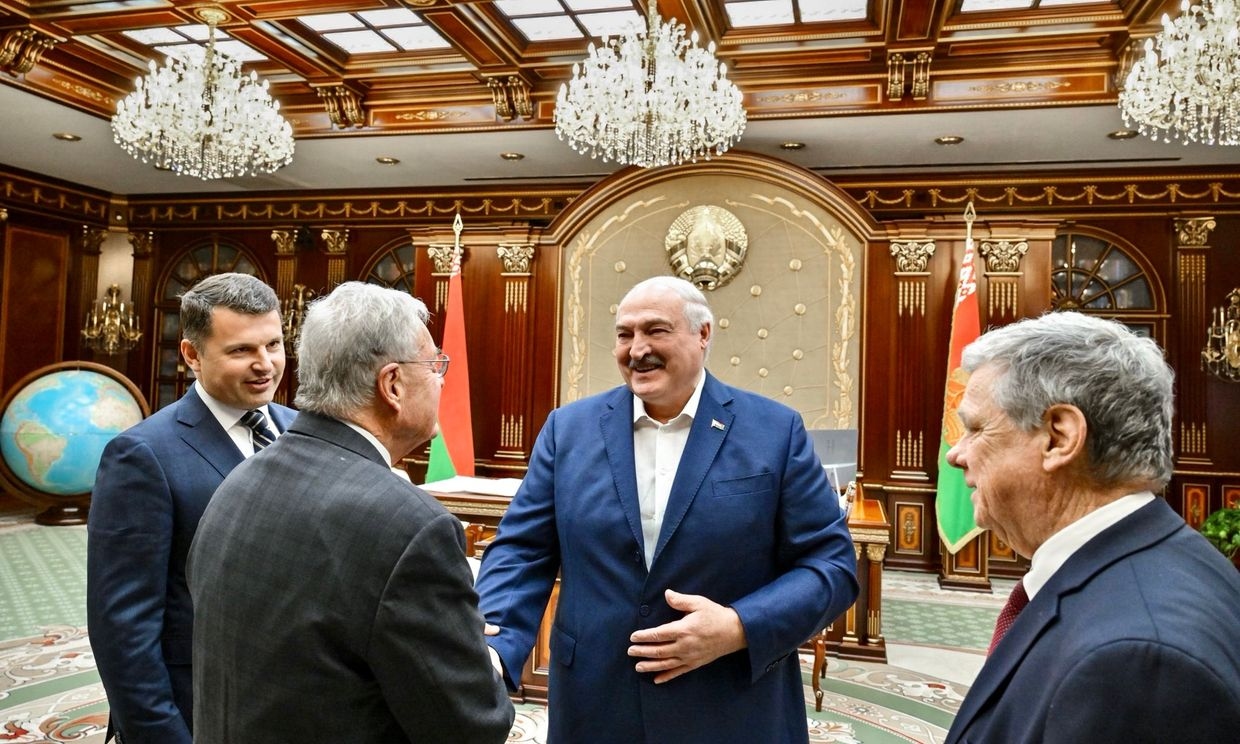
"I don't know their motivation," Jurkonis says, "but in a very simplistic interpretation, maybe they're saying that the value-based approach does not seem to be effective, and maybe we should prioritize the good neighborly relations. But it ignores the root cause of the problem, which is Lukashenko's rule."
Jurkonis attributes such views to "general fatigue" with Russia's war against Ukraine, the Belarusian cause against the backdrop of it, not just in Lithuania but in wider Europe.
"I understand that some politicians might already be fed up with Belarus and would like to 'turn the page,' using Lukashenko's terminology," Jurkonis said. "But it's an issue of not only our moral and principle position, but actually very pragmatic and very national security-driven motivation."
Lithuania follows the larger trend in European and American politics, which is gradually taking an anti-immigration stance, fueling support for right-wing parties, suggests RFE/RL political analyst Valery Karbalevich.
"The further the war goes, the more war fatigue there is in all European countries. Especially since both the war and the sanctions against Belarus and Russia have not had the best effect on the economy. Life is not getting better. And the most straightforward answer to the question of 'why' is increasingly found in migration. It is clear that this wave has reached Lithuania," Karbalevich explains.
The influx of Russian-speaking migrants and Belarusians in particular nurtures the feeling of the threat to "Lithuanian identity," Kabalevich argues.
Public attitudes toward Belarusians have shifted, leading to stricter security measures.
Since late 2022, more than 2,700 Belarusians have been designated a threat to Lithuania's national security. This determination is often based on prior employment in state-owned enterprises — even in low-level positions — or compulsory army conscription, which is mandatory for all males under 27 in Belarus.
While Lithuania does not directly deport individuals to Belarus, a high-profile case emerged in late 2023 when Vasil Verameychyk, a former volunteer with the Kastuś Kalinoŭski Regiment fighting in Ukraine, was denied residency. He subsequently traveled to Vietnam, from where he was handed over to Belarusian authorities and incarcerated.
Citing the potential for recruitment by Belarusian security forces, conservatives from the Homeland Union – Lithuanian Christian Democrats party — Laurynas Kasčiūnas, Audronius Ažubalis, and Valdas Rakutis — proposed revoking residence permits for Russian and Belarusian citizens who make frequent trips to their home countries.
Lithuanian lawmaker Vytautas Sinica called for the revocation of Tsikhanouskaya's office accreditation in Lithuania. Sinica, a former vice chairman of the right-wing National Alliance party (which has since distanced itself from the call), alleged that Tsikhanouskaya's position on "Litvinism" was not tough enough. Litvinism is a fringe, pseudo-historical idea suggesting that Belarusians want to claim Lithuanian history and the capital, Vilnius.
The "Litvinism" debate escalated into a public issue in 2023-2024, fueled by propaganda and provocations like "Litvinist" graffiti in Vilnius or vandalized Belarusian centers. This is despite the State Security Department reporting it has found no evidence of organized groups promoting the idea.
Meanwhile, public attitudes have shifted too: 23% of Lithuanians now say they wouldn't want Belarusians as neighbors, up 5% from the previous year.
Caught in the backlash, the Belarusian diaspora in Lithuania has decreased from roughly 62,000 at the start of 2024 to 51,900 now. While some were expelled by Lithuania, others chose to relocate to other countries themselves.
Uncertain future
As Tsikhanouskaya's aides were awaiting the outcome of consultations with Lithuanian authorities, analysts began speculating about a possible relocation of her office to Poland — home to her deputy, Pavel Latushka — or to Belgium, where another Belarusian office operates.
Lithuanian Parliament Speaker Juozas Olekas insists support for Tsikhanouskaya will stay, while Jurkonis underscores that top foreign-policy officials show no signs of abandoning Belarus's democratic cause.
"I don't think there's a rift (between Tsikhanouskaya and her Lithuanian hosts), to be honest," Jurkonis said. "There's a very intense, long-lasting attempt by the regimes in Minsk and Moscow to instigate a rift through a massive discreditation campaign."
Meanwhile, Foreign Minister Kęstutis Budrys said Lithuania remains ready to work with Tsikhanouskaya and that all issues regarding state protection would be resolved.
"So far, I see no signs of a change in the policy of the Lithuanian government and the Lithuanian political class towards the Lukashenko regime. Changes on the part of the Lithuanian government towards official Minsk could appear if some signals appear from Minsk, and the signals are not just words, but concrete actions," Karbalevich says.
Karbalevich believes Tsikhanouskaya still maintains broader European support.
Regardless of whether the office stays in Vilnius or moves, the decision's symbolism highlights a broader European challenge: how to sustain a moral and principled commitment to democratic causes when war fatigue and volatile domestic politics begin to erode solidarity.
As Jurkonis puts it, "at the end of the day, it's not so much about us or Sviatlana Tsikhanouskaya's personality as such. It's about whether we still believe that a democratic and free independent Belarus is possible."

